When Nymphia Wind dedicated her win on RuPaul’s Drag Race, the first by an East Asian, to Taiwan it showed how the scene there has evolved
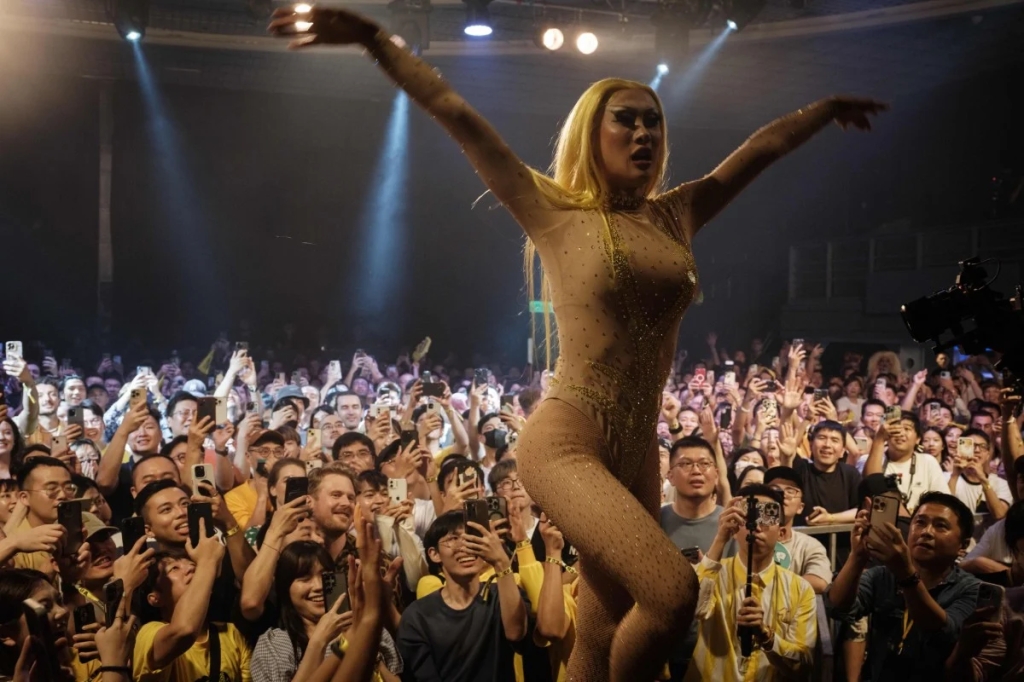
When Nymphia Wind became the first East Asian contestant to win “America’s Next Drag Superstar” on RuPaul’s Drag Race in April, celebrations erupted across her homeland.
Prominent gay bars from north to south held crowded screenings to cheer on their representative from afar, and the accolades were well received – and not just among the LGBTQ+ community.
On the show, Nymphia often talked about her heritage and drew on her background to create costumes and masks inspired by the traditional culture of Taiwan.
The 28-year old drag performer, known offstage as Leo Tsao, inspired millions from RuPaul’s vaunted international stage, announcing “Taiwan, this is for you”. In May, Nymphia returned to where she was raised – she was born in the United States, but moved to Taiwan at the age of six.
There was an unprecedented performance at the presidential office for Taiwan’s then leader, Tsai Ing-wen, just before the inauguration of William Lai Ching-te.
Nymphia headlined the show, joined by several other local drag queens, making the occasion a significant milestone in LGBTQ+ visibility on the island.
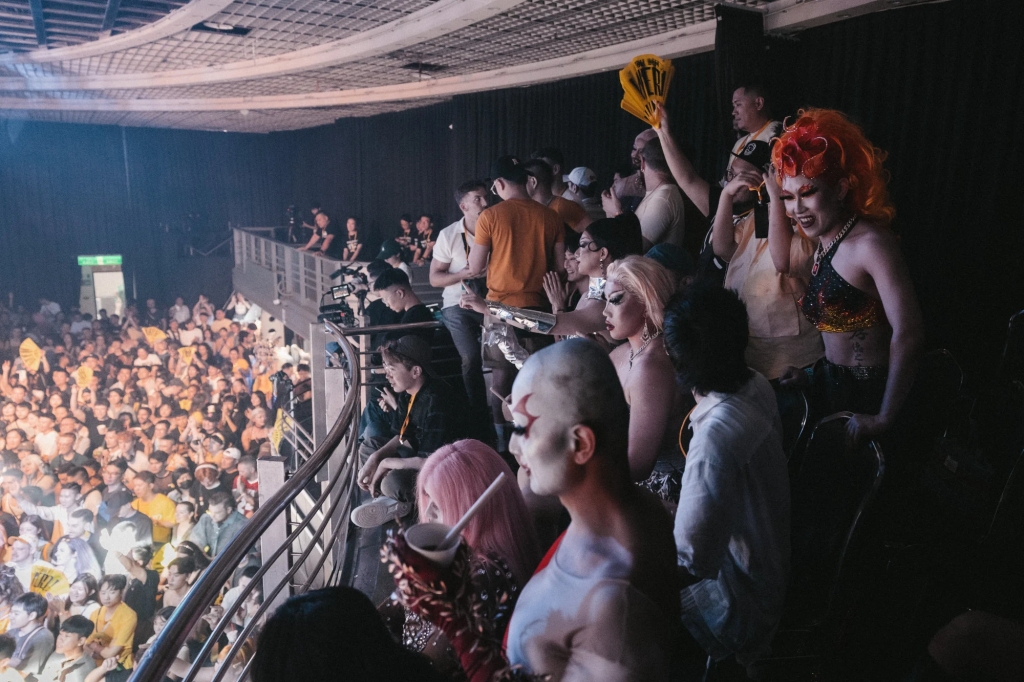
Nymphia followed this stately occasion with her first public performance since winning RuPaul’s Drag Race, at the second annual Taipei International Drag Fest “You Better Werq!” on May 25.
The event featured other American contestants from RuPaul’s Drag Race, Plane Jane and Mirage, Jade So from Drag Race Philippines, and 50 other local and international drag queens dancing and lip-synching to popular songs.
Held at the Hanaspace venue in Taipei, there was a both matinee and evening show with over 2,000 attendees in total. The audience was full of people wearing yellow and sporting banana iconography, marking them as fans of Nymphia’s signature style.
Other drag queens in the show came from all over the world. One who stood out at nearly two metres (6ft 6 inches) in height (in heels), was Popcorn, 34, from New Zealand.
Popcorn has been in Taiwan for seven years, and spoke about what it meant to be in the show.
“I’m very honoured,” said Popcorn. “I saw Nymphia’s very first performance, back when she was a baby drag queen. To see how she’s developed, her progress over the years, and seeing her work so hard, I think the overwhelming feeling is pride.
“She’s really representing Taiwan so well and so eloquently.”
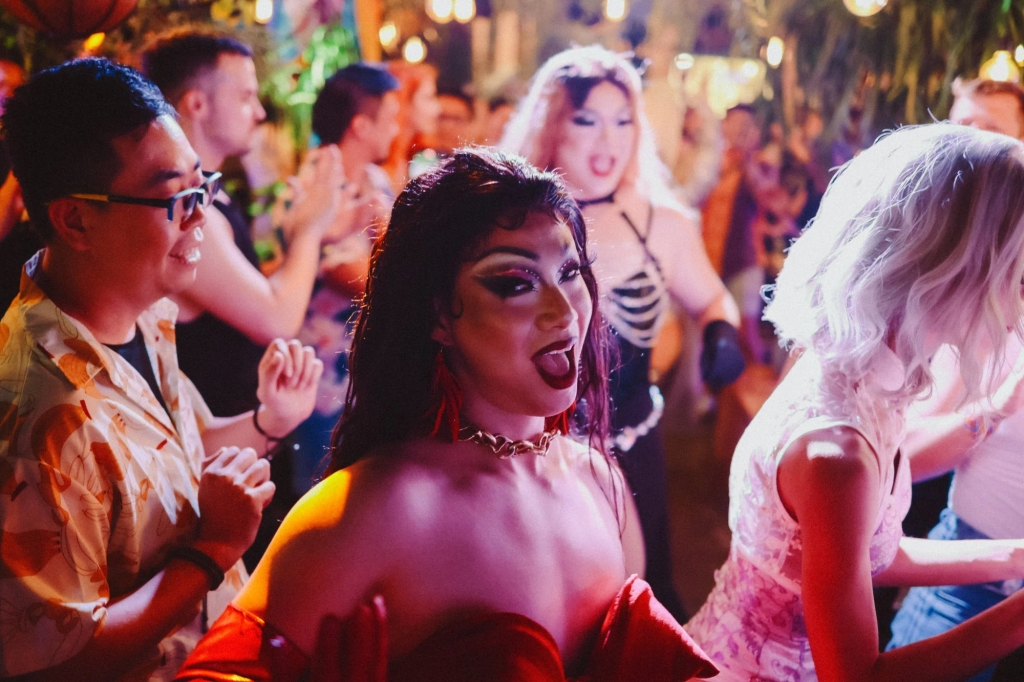
Tinus “Bouncy Babs” Stander, 46, is from South Africa and hosted the “You Better Werq!” evening show. Babs has lived in Taiwan for 10 years, and often hosts shows in Taipei and Kaohsiung.
“I just know how I want the shows to pan out and to flow and how to get the audience involved,” he said of his hosting duties. “It’s really important for the audience to have a great time.”
Babs also shared his optimism about being part of the current movement: “We are the ones who are going to change LGBTQ rights and equality in Asia.”
Another drag queen, American Elja Heights, 34, is also optimistic about the future of the art form. Drag is “constantly moving in this direction of more people knowing about it, more people slowly – especially outside the LGBT community – are starting to understand that it is an art form”, she says.
“Everything has been really positive, which I’ve been happy to see. There have been a few online that are negative. Whatever, there’s always going to be people who do not understand what we’re doing; there’s always going to be a little resistance to progress.
“Everything has been really positive, which I’ve been happy to see. There have been a few online that are negative. Whatever, there’s always going to be people who do not understand what we’re doing; there’s always going to be a little resistance to progress.
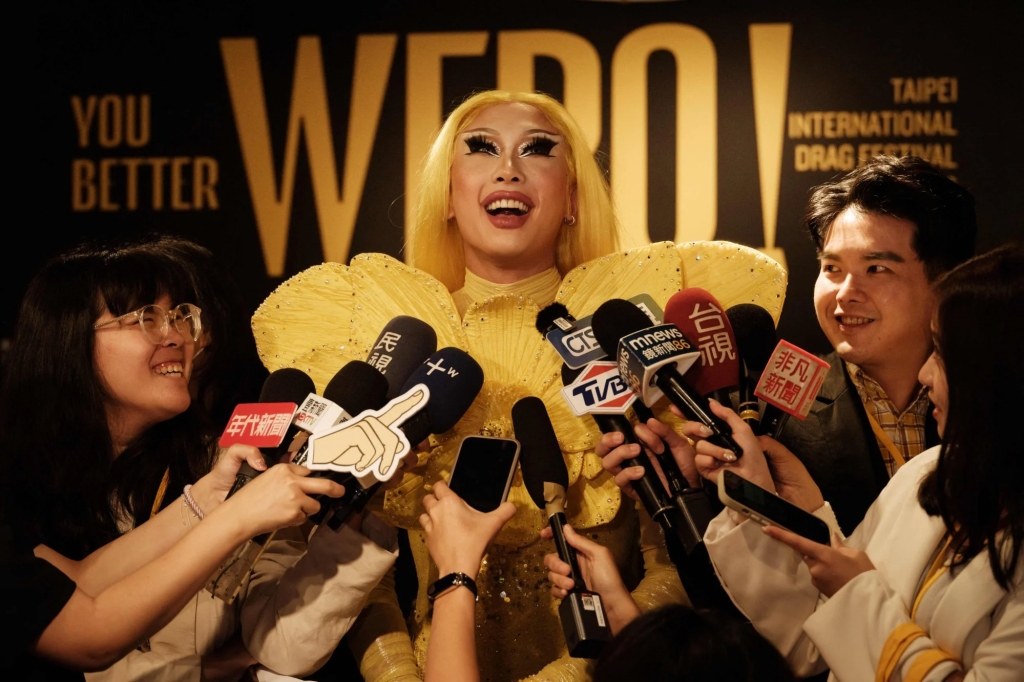
Drag existed in some bars and nightclubs in Taiwan in the 1990s, such as at Paradise Party, which was the first gay club in Taipei, having opened in 1995.
In the early 2000s, the popular comedian Da Bing brought drag to Taiwanese television with his impersonations of female celebrities. Da Bing died in 2012.
The television series RuPaul’s Drag Race premiered in America in 2009 and had a big impact throughout the 2010s. Many drag queens around the globe have described how the show was a major influence for them.
Social media also helped the culture grow, which led to brand sponsorship for some of the bigger stars, particularly during the Covid-19 pandemic, which led to more popularity.
Some of the other big names that came up at the same time on the island as Nymphia are Yolanda Masula, Chiang Weii, and Feilibing.
“I’m very happy because Nymphia won. Different people see drag as art. But the environment is still very hard for drag queens”
Tseng Chih-wei, director of the Mommy Drag documentary
Drag queens have been around in Taiwan for decades and often performed in smaller venues, fostering their tight-knit community.
There is, for example, a bar in the Ximending shopping district where Elja had met Nymphia before the trappings of fame.
“I’ve known Nymphia for a long time,” she says “We’d see each other a lot at Café Dalida, an outdoor bar in Taipei that’s had drag performances for a long while.
“I jokingly call it the public gay square, because if you go to Dalida, you will run into people you know.”
Café Dalida has hosted frequent drag shows, featuring lip-synching performances with glamorous costumes and make-up, as well as other events important to the community.
On May 11, the documentary Mommy Drag (2020), which features Nymphia, was screened there. The director, Tseng Chih-wei, 32, attended and gave his perspective on the challenges that he feels still remain.

“I’m very happy because Nymphia won,” said Tseng. “Different people see drag as art. But the environment is still very hard for drag queens [in Taiwan]. They don’t get paid well.
“During the pandemic, the government had funding to help people, but when drag queens applied for funding as artists, they got refused. I wish drag queens were more recognised as artists.”
The owner of Café Dalida is Alvin Chang. He also organised “You Better Werq!” The 53-year-old is from Taipei; he opened his bar in 2006, and “the opening day had drag shows”.
Chang also knew Nymphia before she gained international fame by winning RuPaul’s Drag Race; she had hosted several of his events since 2019.
“Nymphia in person used to be very quiet,” Chang recalls, but since RuPaul’s Drag Race, he says he feels “everything has changed”.
As Nymphia harnessed the attention, so has Taiwan’s drag culture in general. “Before,” Chang says, “drag shows were underground, nobody cared. Now, everyone is focusing on it”.
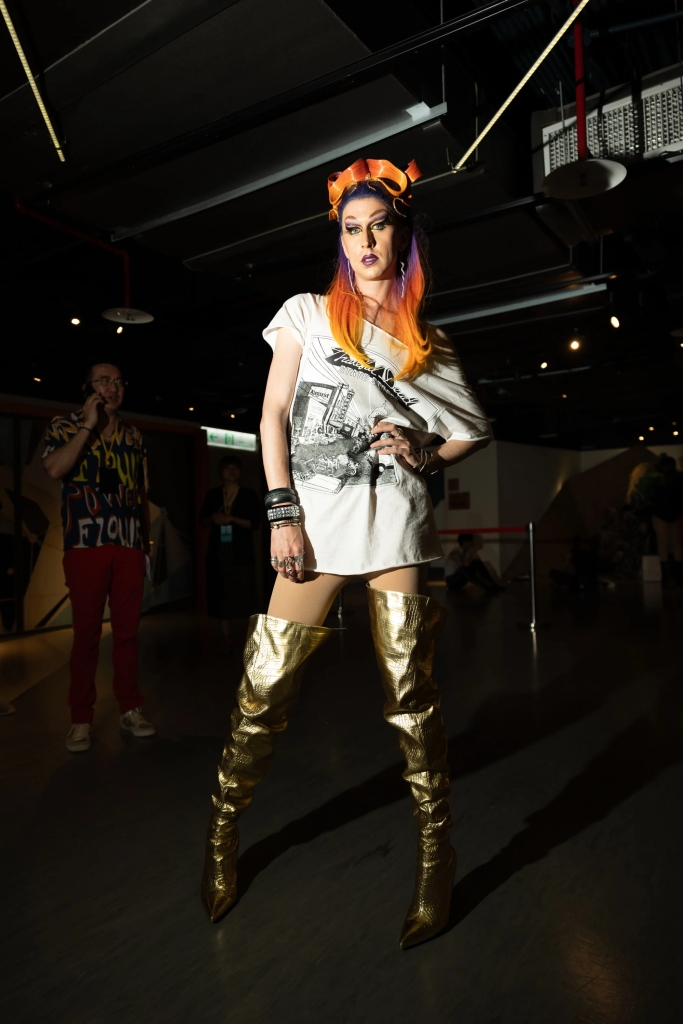
When asked about organising “You Better Werq!”, Chang says: “This was the grandest in our eight years of organising large-scale events. Our past experiences were insufficient for this event, especially with so many media and distinguished guests attending. It was a whole new level for us.”
For example, Taipei City counsellor Miao Poya, one of the few openly gay politicians in government, came to check it out. Taiwan’s Minister of Culture, novelist Li Yuan, attended and gave a speech during the matinee show.
“The Taipei International Drag Fest is a shining example of how diverse cultures and expressions can thrive in Taiwan,” he said. “It is wonderful to see such a vibrant celebration of creativity and inclusivity.”
Originally, the plan was to only have an evening show, but there was much more interest than anticipated and an afternoon matinee was added.
“On the day after Nymphia won the crown, the evening show, which had been on sale for a month with little progress, sold out within a day,” says Chang.
“The next day, many in the media suddenly contacted us wanting to film the event, and many friends couldn’t get tickets. So, after discussing with Nymphia and her fellow queens, we decided to add the afternoon show.
“Major media outlets, both domestic and international, reported on it, and the unexpected visit by the Minister of Culture was an unprecedented achievement.
“This event involved over 100 people, including performers and staff, working together to accomplish this difficult task!”

In late October, Taipei will host the Taiwan Pride parade, the largest gay pride event in East Asia.
On October 26, as part of the festivities, Chang will organise another large drag queen party featuring Nymphia Wind, along with others from RuPaul’s Drag Race. The other attendees will include Kim Chi, the first Korean-American contestant on the show, as well as Filipino-American Manila Luzon.
Taipei’s Popcorn will perform on June 28 with the drag troupe The Haus of Dimensions during a screening of the 1927 Chinese horror film The Cave of the Silken Web, and will collaborate with the Yilan Traditional Arts Centre on October 5.
“With this experience, we are more confident in organising larger events in the future so that more people can personally experience the charm of drag queen performances.”







